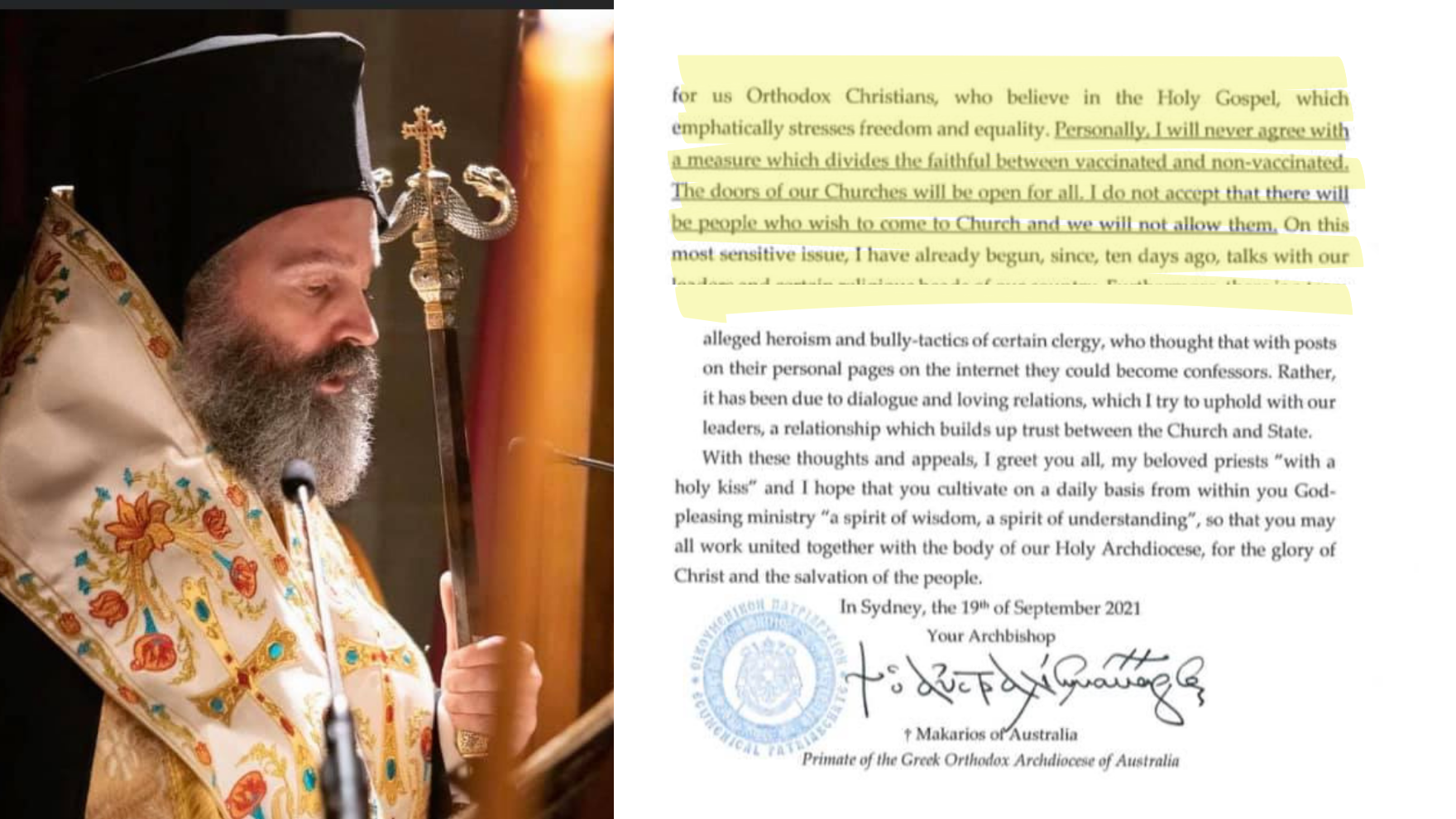His Eminence Archbishop Makarios of Australia issued a pastoral letter to clergy last night which makes clear that local Greek Orthodox Churches will not divide the faithful into vaccinated and unvaccinated.
“We are facing great difficulty these days because already, in the State of Victoria, they have announced that entry to our Sacred Churches will be prohibited to the faithful who are not vaccinated,” His Eminence said in the letter, which has been circulating on social media this morning.
“Personally, I will never agree with this measure which divides the faithful into vaccinated and unvaccinated. The doors of our Churches will be open to all the faithful. I do not accept that there will be faithful who wish to attend Church and they will not be permitted to do so.”

Archbishop Makarios does acknowledge, however, that vaccinations remain “primarily a medical and scientific issue” and stresses that not all vaccines “are ethically unacceptable.”
“The international scientific community tells us that vaccination is the only solution to confront the pandemic. We therefore listen to the specialists. We urge our people to be vaccinated, without compelling anyone, respecting the freedom of every person,” His Eminence writes.
Churches in New South Wales, Victoria and the Australian Capital Territory remain closed to the faithful due to the current lockdown in those states. Victoria recorded 603 COVID-19 cases today, while NSW had 1,022 new COVID-19 cases and the ACT recorded 16 new cases.
In a statement to The Greek Herald, the Department of Health said:
“Vaccination for COVID-19 is voluntary – as are all vaccinations in Australia – and everyone maintains the option to choose. The Australian Government is a strong supporter of immunisation as a safe and effective way to prevent the spread of many diseases in the community that can cause hospitalisation, serious ongoing health conditions, or even death.
“The COVID-19 pandemic is a public health emergency, and states and territories, who have primary responsibility for public health, are managing the pandemic in their respective jurisdictions based on health advice. We recommend reaching out to the relevant states and territories for advice regarding specific jurisdictions.”
